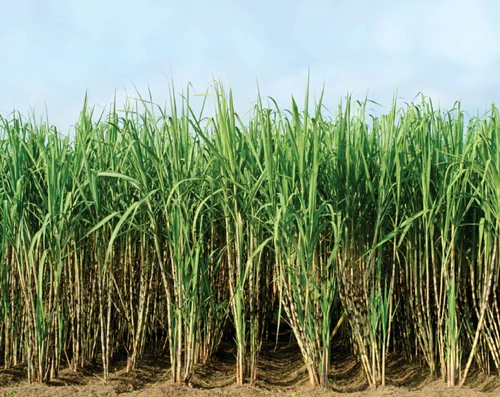Intro
Sugarcane is especially useful in organic farming practices because of its contribution to soil structure, diversity, and efficiency.
Here’s how sugarcane can fit into an organic system towards sustainability:
- Enrichment Of Soil Without The Locked-In Resources
Root Biomass: The roots of sugarcane assist in the improvement of soil structure and organic matter which in turn contributes to its fertility in a long run basis.
Organic Mulch: The spent leaves (also known as trash) may be used as mulch to promote the following, suppression of soil moisture loss, immobilization of weeds, and eventual decomposition to enhance soil nutrients.
Crop Residues: Leftover materials after harvesting like bagasse (which is the fiber obtained after juice extraction) can be made into powdered compost and bio fertiliser.
2. Resource Usage Optimization
Water-Saving Traits: Some new types of sugarcane require only a limited amount of water and are therefore suitable for dry land farming and rain-fed agriculture.
Intercropping Benefits: Beans and peas or peanuts can be grown along with sugarcane, thus providing nitrogen to the soil and eliminating the need for nitrogenous fertilizers.
Waste Recovery: Energy, biogas, or livestock feed can be produced from bagasse, making it a non- waste product.
3. Protection Against Pests and Weeds
Biological pest management: The ladybug is known to live in the variety of crops grown in the sugarcane fields; it does work in controlling pests.
Control of Weeds: High density canopy development in sugarcane crop cases formation of tighter canopies, controls the weeds and reduces the use of chemical herbicides.
Intercropping: Sugarcanes can be grown with other repellent plants like marigold or garlic to aid in pest control.
4. Carbon Sequestration and Climate Benefits
High Carbon Storage: Sugarcane, a C4 plant recognizable by its high carbon fixation and sequestration, is capable of helping deal with the of climate change.
Renewable Energy Source: Not only does Bagasse and the production of ethanol from sugarcane juice products lessen the dependancy on fossil fuels.
5. Circular Farming Practices
Bio-Ethanol Production: Biofuel in the form of ethanol from sugar cane contributes to the circular farming economy.
Bio-Compost: Press mud, produced when cane juice is clarified, is full of nutrients and acts as a good organic fertilizer.
Organic Inputs: A byproduct of cane sugar is the molasses which can be applied in organic farming as the source of microbial culture for the soil.
6. Biodiversity and Habitat Preservation
Support for Pollinators: In sugarcane areas, beehives can be placed since these insects are nabours to other crops.
Agroforestry Integration: Sugarcane is cultivated between trees or shrubs enhancing variety in crops and reducing soil erosion.
7. Economic Benefits for Farmers
High Yield Crop: Sugarcane is known for its impressive yield per acre, which helps farmers engaged in organic farming secure a steady income.
Value-Added Products: Farmers can also boost their earnings by selling byproducts such as jaggery, ethanol, and organic molasses.
8. Challenges in Organic Sugarcane Farming
Labor-Intensive: Implementing organic farming techniques for sugarcane, including hand weeding and applying compost, can demand a lot of labor.
Pest Vulnerability: Sugarcane is susceptible to pests like borers, so it’s important to use natural control methods, whether that means bringing in predators or using organic sprays.
Water Requirements: Although there are drought-resistant varieties available, sugarcane typically needs a lot of water, making effective irrigation solutions, like drip irrigation, crucial.
Best Practices for Sustainable Sugarcane Farming
- Crop Rotation: Mix sugarcane with leguminous crops to boost the nitrogen levels in your soil.
- Organic Fertilizers: Utilize compost, farmyard manure, or bio-fertilizers made from sugarcane byproducts.
- Integrated Farming: Bring livestock into the mix for manure, and use sugarcane byproducts as animal feed.
- Water Management: Implement rainwater harvesting and micro-irrigation methods to cut down on water waste.
- Zero-Waste Approach: Ensure that all sugarcane byproducts are recycled within the farming process, whether for energy or to enrich the soil.
Conclusion
Sugarcane is much more than just a cash crop; it serves as a diverse and sustainable resource in organic farming. When carefully woven into a farming system, it enhances soil health, boosts resource efficiency, and supports economic sustainability while also benefiting the environment. By tapping into its full potential, farmers can harmonize sugarcane cultivation with the ideals of zero-waste and organic farming practices.


